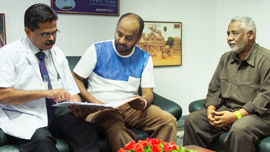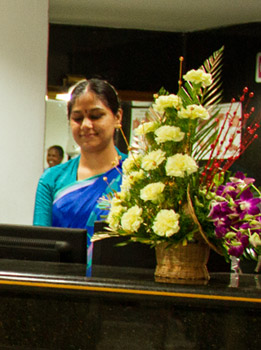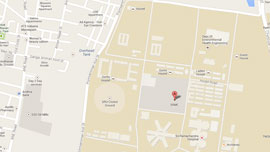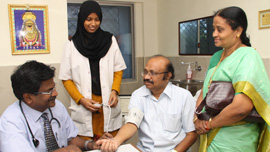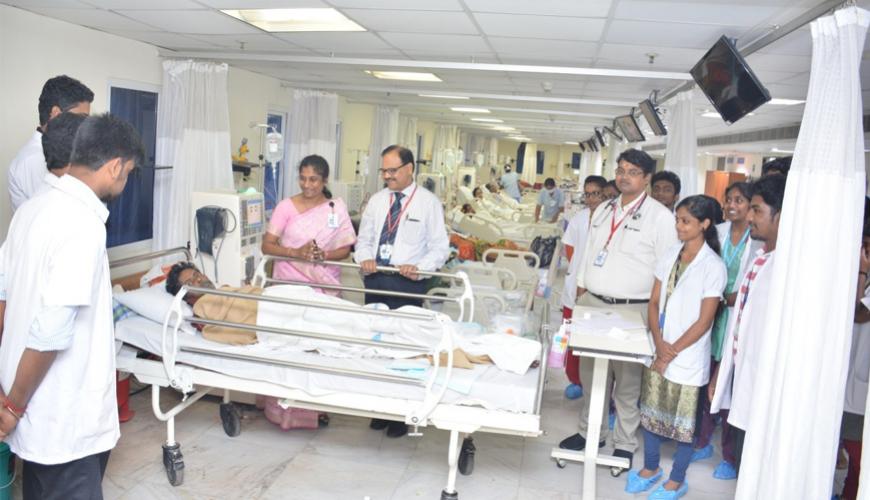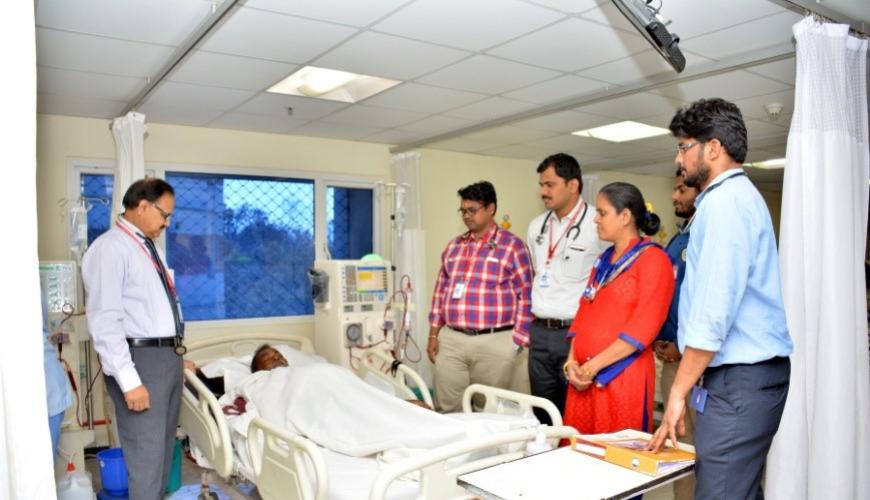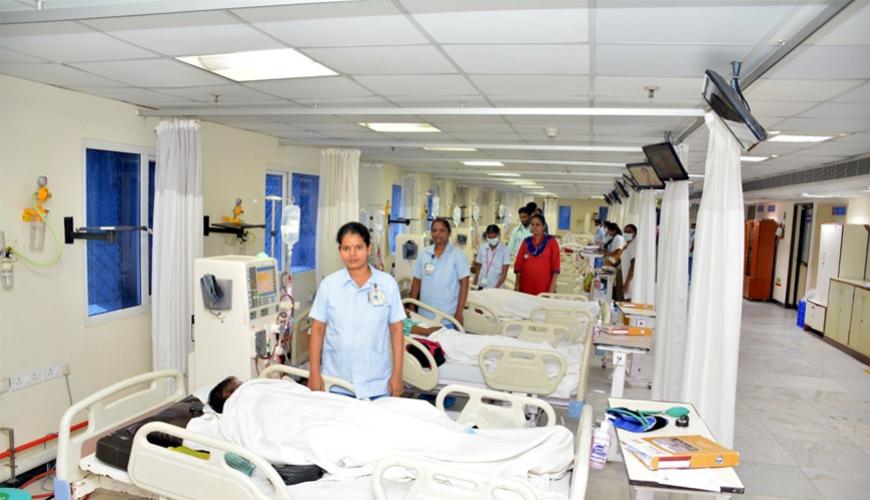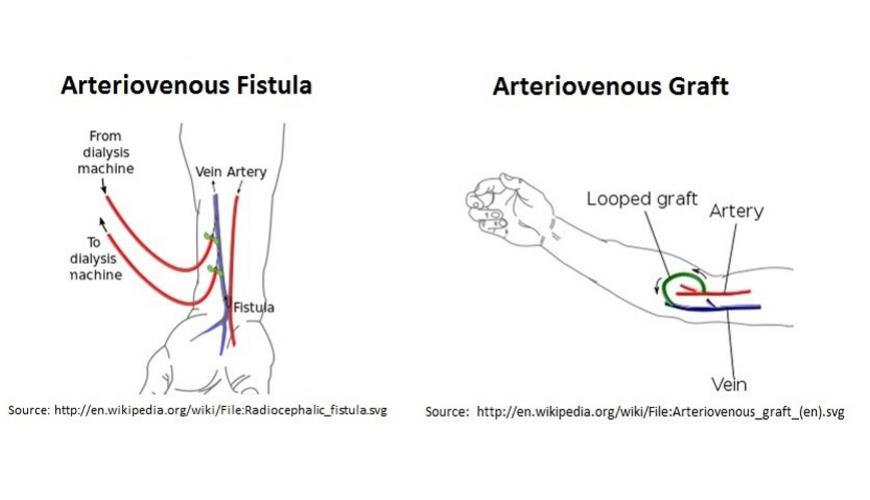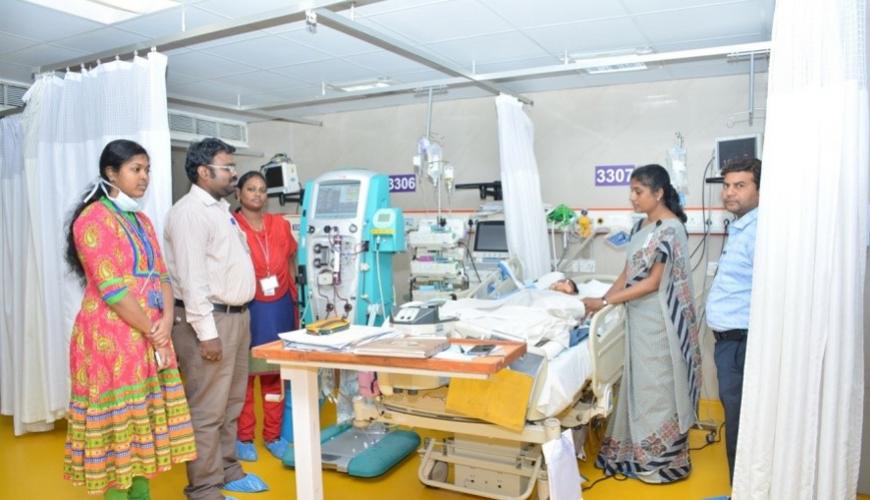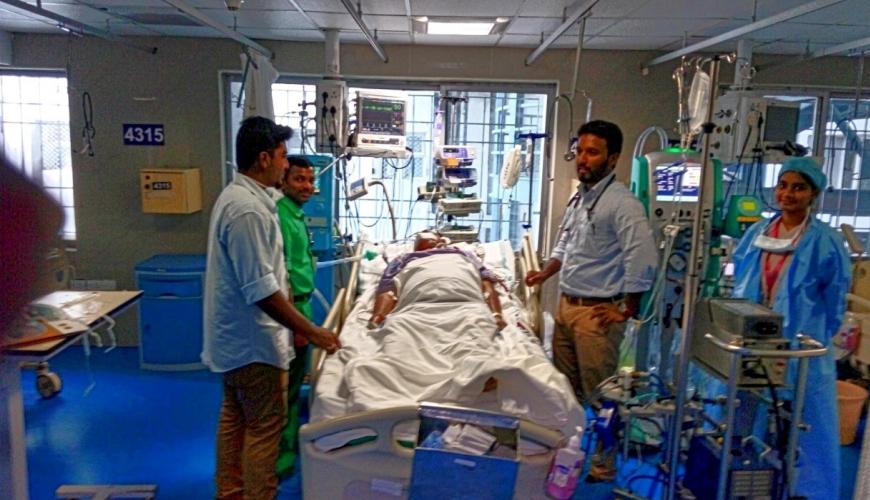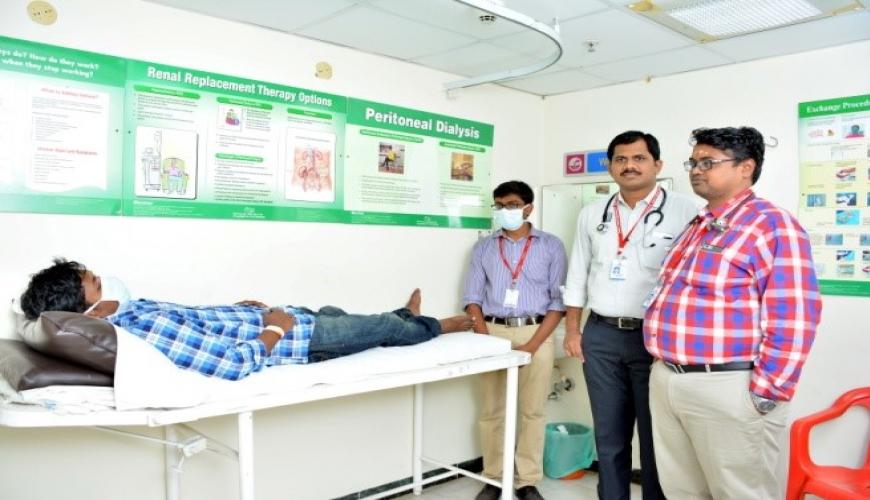Clinical Services
Sri Ramachandra Medical Centre is a well known tertiary care hospital maintaining international standards in providing integrated renal health services.
It comprises of
- A team of eminent and highly qualified doctors with wide experience.
- Special counsellors committed to help patients and relatives.
- Expert committee to offer ethical consent and opinion for renal transplant.
- Adherence to government regulatory rules & regulation.
- Special post operative care and Intensive care unit well maintained by infection control team and monitored by senior specialists.
WHAT IS NEPHROLOGY?
Nephrology is a specialty of medicine that deals with kidney diseases.
DIALYSIS :
When the kidney’s function drops below minimum requirement to sustain life and maintain normal parameters, it has to be replaced with dialysis and or renal transplantation.
Purification of blood via artificial means is called “dialysis”.
TYPES OF DIALYSIS:
- Hemodialysis
- Peritoneal dialysis
HOW HEMODIALYSIS IS DONE?
It is a blood purification process done through a hemodialysis machine. In this process the blood is passed through the machine to purify and sent back to the body.
WHO NEEDS IT?
It is required for patients who suffer from permanent kidney damage and in patients with temporary reduction in kidney function.
WHAT IS THE REQUIREMENT OF PERFORMING HEMODIALYSIS?
It requires creation of an AV fistula or insertion of dialysis catheter.
HOW FREQUENT SHOULD IT BE DONE?
It should be performed twice or thrice a week or as advised by the doctor.
WHERE IT CAN BE DONE?
It is ideally done in hospital under observations of skilled nephrologist and technical staff
CONTINOUS RENAL REPLACEMENT THERAPY FOR CRITICALLY ILL PATIENTS
CRRT IN PAEDIATRIC PATIENTS
CRRT is a dialysis modality used to treat critically ill, Hospitalized Patients in the intensive care unit who develop acute kidney injury (AKI).
ECMO WITH CRRT CRITICALLY ILL PATIENTS
PERITONEAL DIALYSIS
WHAT IS PERITONEAL DIALYSIS?
It is one of the methods of dialysis that is done for patients with permanent dysfunctioning of kidney. It is otherwise called as ambulatory peritoneal dialysis.
HOW IS IT DONE?
A peritoneal dialysis solution is passed on into the body 3-4 times per day under the guidance of the nephrologist through a tube inserted into the abdomen of the patient.
WHO NEEDS IT?
It is done treatment for patients without vascular access, children and patients with severe cardiovascular disease.
RENAL TRANSPLANT
- This is the ideal solution for patients with end stage kidney disease. In this method a kidney donor is sought from the close relative (father-mother,grandfather,grandmother,brother-sister,son-daughter,and husband-wife)of the patients with end stage renal disease. This is called as “live related renal transplantation”.
- In absence of a perfect matched close relative, the patient can opt for deceased / cadaveric renal transplantation from brain dead donors.
- Usually the allograft kidney is placed in the abdomen without removing the original dysfunctioning kidney.
- A successful kidney transplantation needs a meticulous prior preparation and evaluation process for both the patient and the donor
- Patients who have undergone transplant must continue proper medication and lifetime follow up with nephrologist to preserve good graft function.
ACHIEVEMENTS :
- 1995- First live renal transplant
- 1995- B.Sc Allied Health Sciences course in dialysis technology
- 1996- First Cadaver renal transplant- one of the leading centres in India
- 2002- DM Nephrology course
- 2003- Division of Pediatric Nephrology
- 2006- MSc. Renal Sciences
- 2010 – 1st Paediatric kidney transplant
- 2011 – DM Nephrology seat increased to 3 seats
- 2014- ISN TRAINING PROGRAM IN INTERVENTION NEPHROLOGY BY DR.LATHAKSHAR KUMBHAR,DETROID, USA FOR 10 DAYS IN MARCH 2014
Awareness video for Fluid Overload in Dialysis Patients
Click here to View the Video








